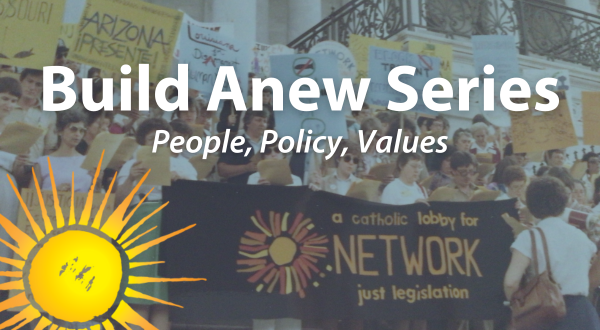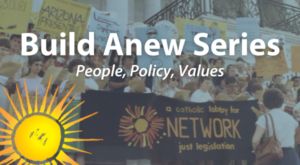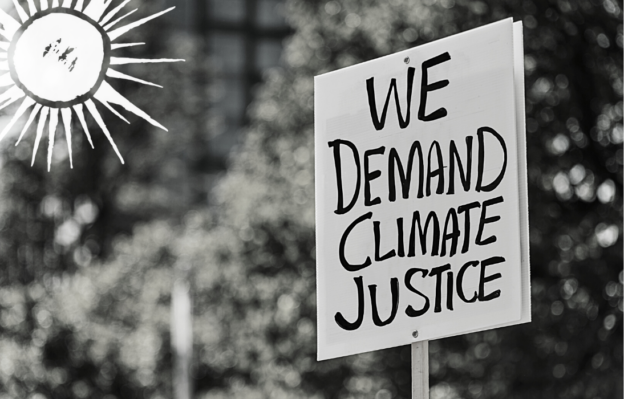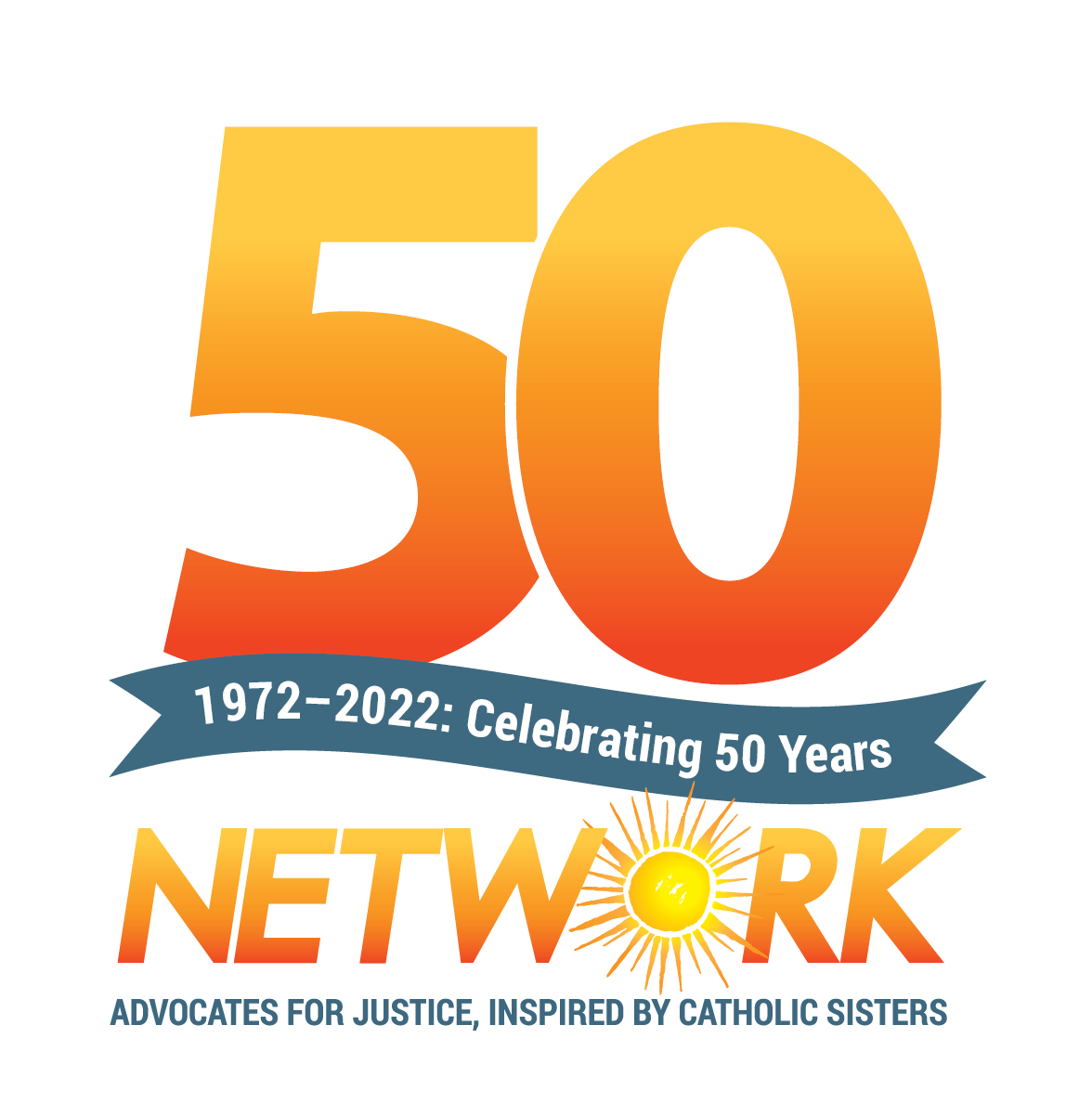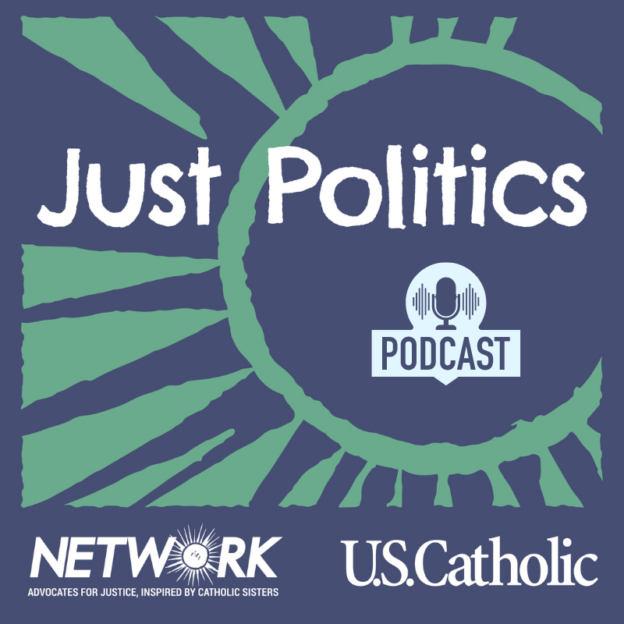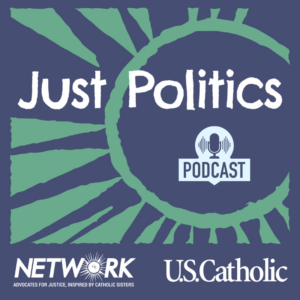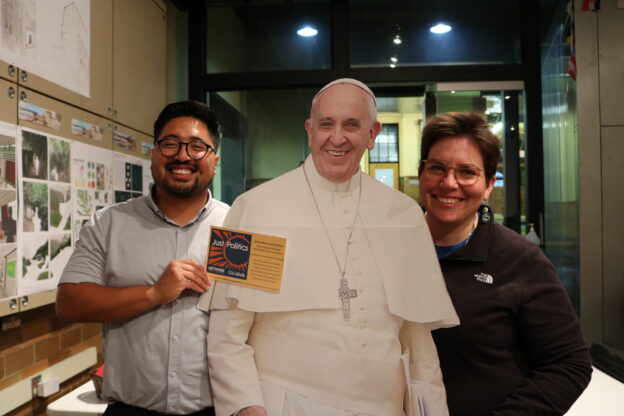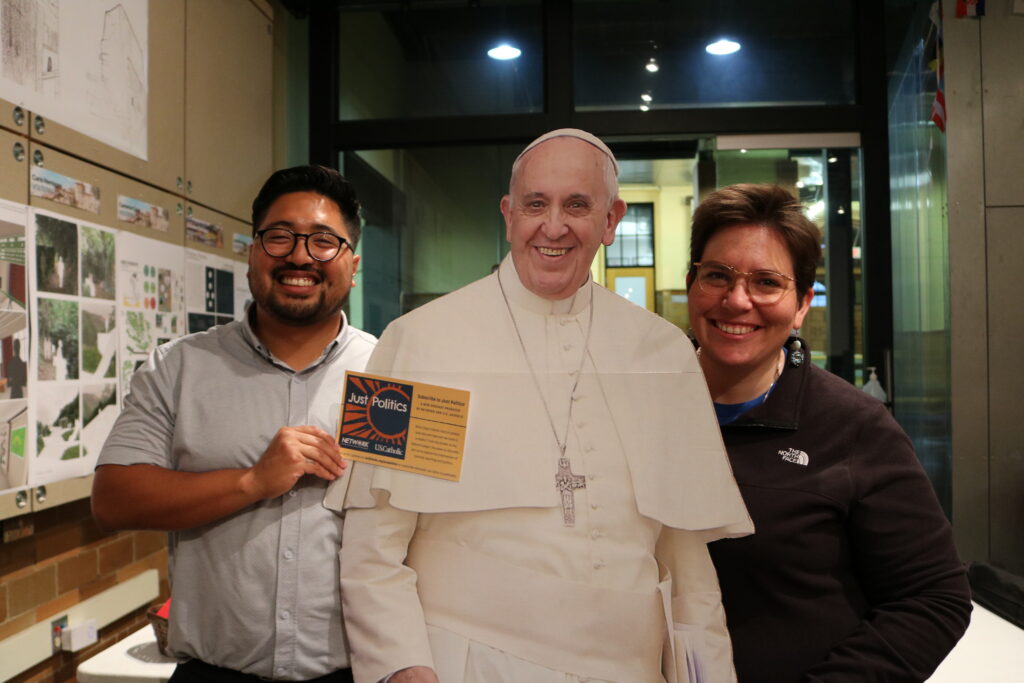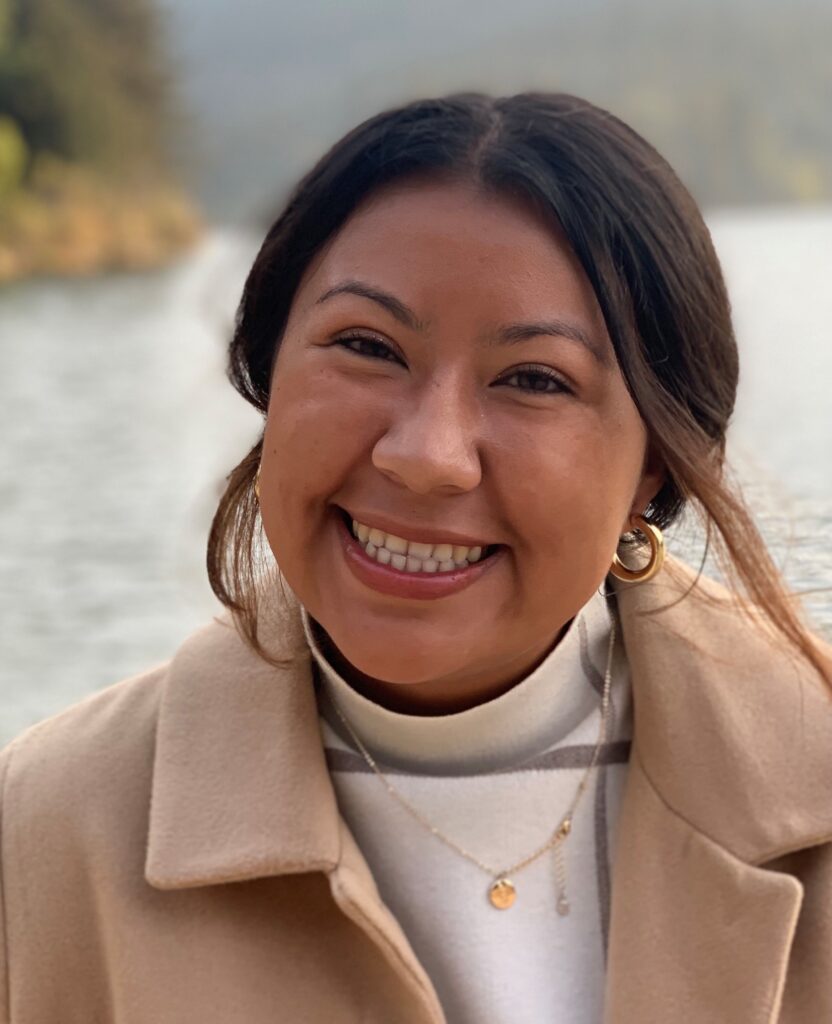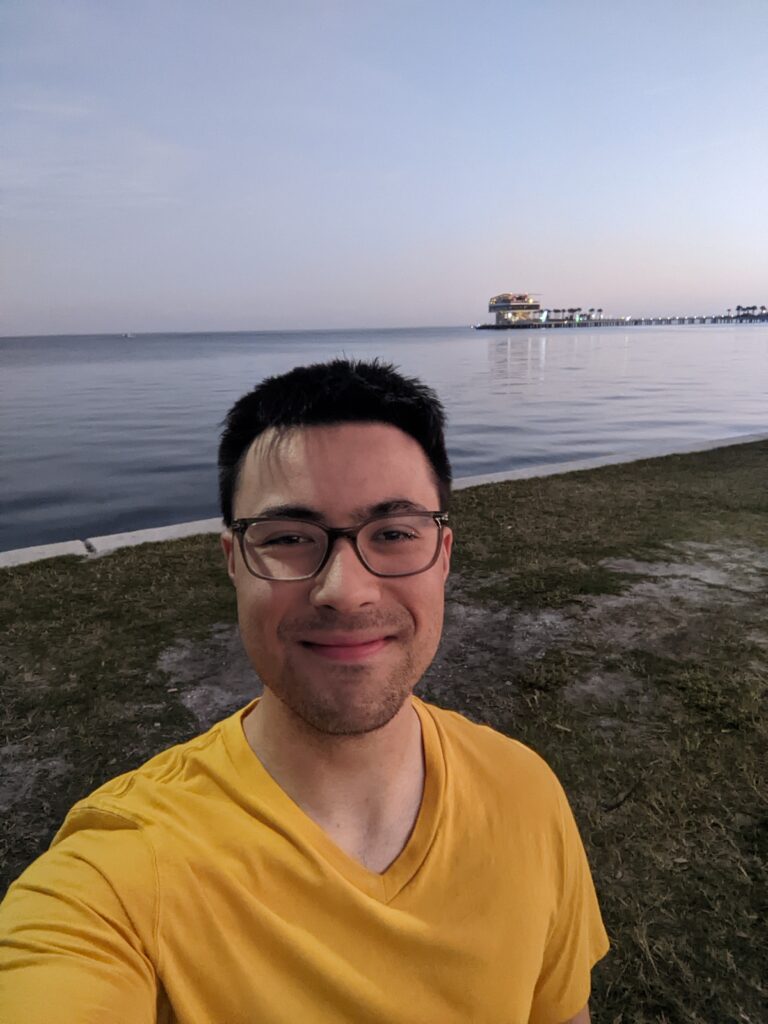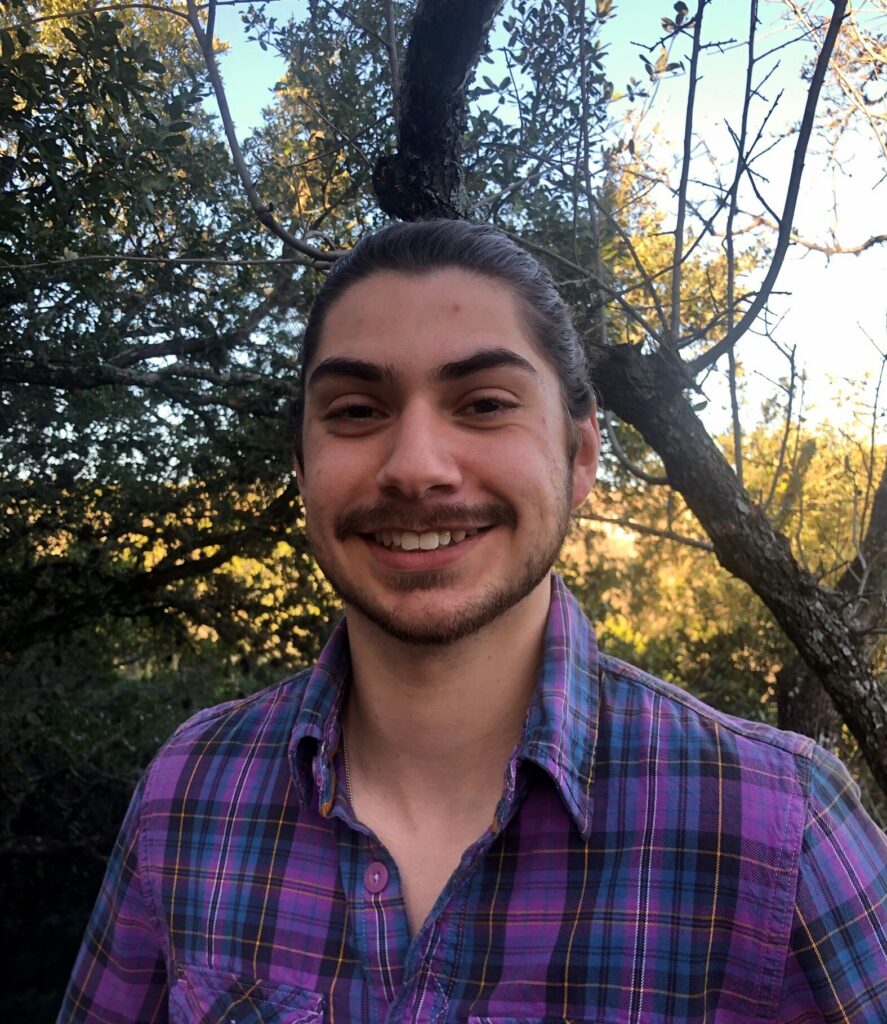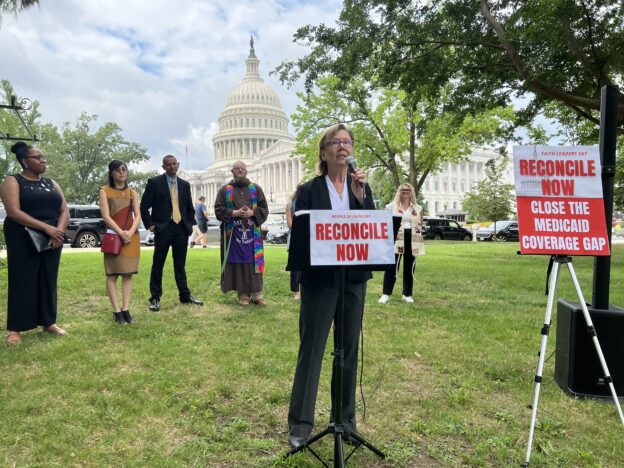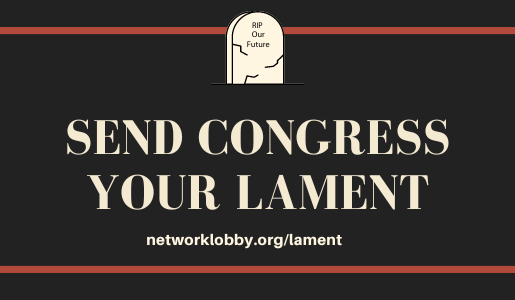
Build Anew Series — Part 10
Looking Ahead
Virginia Schilder
December 5, 2023
Welcome back to our Build Anew Series, with weekly posts covering the people, policies, and values at the heart of the issues we work on. This final post wraps up the Series and looks ahead to more work together in 2024, including the launch of Y.A.L.L.: Young Advocates Leadership Lab. Thank you to everyone who has joined us in reading, watching, and taking action!
Well friends, here we are: our TENTH and final part of the Build Anew Series!
Thank you to everyone who has been with us on the Build Anew Series journey. Over the past few months, we dove into each issue of NETWORK’s Build Anew Agenda. We learned from the some of the people most directly impacted by these policy issues, we confronted some tough policy facts, and, rooted in the Catholic Social Justice tradition, we reflected on the moral dimensions of these social realities.
Equipped with that knowledge, reflection, and compassion, we took action — from urging President Biden to establish an H.R. 40 Reparations study commission; to calling our Representatives in Congress to protect and expand SNAP; to learning more about Medicaid unwinding; and to watching White Supremacy and American Christianity part 3.
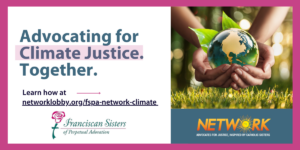 You may have noticed that one of our key issue areas was missing from the series posts: climate justice. Earlier this year, NETWORK added climate justice to our work, thanks to an extremely generous gift from the Franciscan Sisters of Perpetual Adoration. Climate justice is connected to all of the issues in the Build Anew agenda, like food, health care, immigration, taxes, the economy, and more. As we move into the new year, join us in integrating climate justice more deeply into our advocacy!
You may have noticed that one of our key issue areas was missing from the series posts: climate justice. Earlier this year, NETWORK added climate justice to our work, thanks to an extremely generous gift from the Franciscan Sisters of Perpetual Adoration. Climate justice is connected to all of the issues in the Build Anew agenda, like food, health care, immigration, taxes, the economy, and more. As we move into the new year, join us in integrating climate justice more deeply into our advocacy!
2024 will also bring the launch of our exciting new initiative, Y.A.L.L.: Young Advocates Leadership Lab. Y.A.L.L. will equip and resource emerging Catholic and other faithful justice seekers to be leaders in working for a multiracial democracy. If you’re a young person (like me!) and found that even just one of these issues touched you or spoke to you or your community’s lived experience, we invite you to reach out to NETWORK’s Grassroots Mobilization and Education Specialist Chelsea Puckett to learn more about Y.A.L.L.
The Build Anew Series brought us back again and again to our foundational Catholic social teaching: that every single person has dignity and our flourishing is intertwined — meaning no one can be left out of our circle of care! To build anew, our society and communities to be more life-giving for all of us means cultivating solidarity, a daily conversion to loving our neighbor by working for their wellbeing. We are called to join in the Spirit’s liberating action all around us, and together, we have the power to build anew!
Thank you so much for joining us! Continue to be part of our community of justice-seekers by following NETWORK on social media (like Instagram (@network_lobby) and Facebook) and becoming a NETWORK member.







